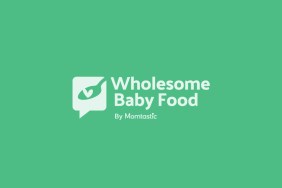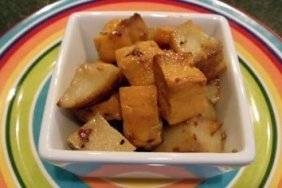Fruits for Homemade Baby Food
Apricots
Apricots are best when allowed to ripen on the tree. Just like many other fruits, they will ripen further once they are picked. One way to determine if an apricot is ripe, just like with plums, is its firmness. It should yield gently when pushed without too much “give”.
Apricots are high in Beta Carotene (Vitamin A), Vitamin C and Lycopene. Just 3 apricots contain approximately 30 % of the USRDA for Vitamin A. This combination of nutrients is one of the best defenses against heart disease and some cancers.
read more >>>>
Plums
Plums come in many different varieties as well as different shapes and sizes. Plums grow on trees and are indigenous to China, the United States and parts of Europe. Plums may vary in colour from greens to deep purple, almost black, hues. When selecting any type of Plum, ensure that the skin is smooth and that the flesh yields slightly when gently pressed or pushed. Once picked and purchased, a Plum will not ripen as many other fruits do – you may however leave firm Plums out at room temperature so that they may soften.
Plums may be kept in the refrigerator for up to 5 days and they may also be frozen.). read more >>>>
Pears
Pears are high in fiber, potassium and Vitamin C. High in fiber, Pears like other fruits, are great aids in reducing the risks of cancer and heart attack and sustaining healthy cholesterol levels. They are also a great fruit to offer as a remedy to help alleviate constipation. Pears contain no sodium, saturated fats or cholesterol. They contain two types of sugars, glucose and fructose. A pear is very nutrient dense meaning that there are more nutrients per calorie than calories per nutrient.
read more >>>>
Papaya
Due to it’s almost buttery texture and sweetness, it is said that early explorers to the South American region called the papaya the “fruit of the angels”. The papaya is a very nutritious fruit. It contains a high amounto of Vitamin C (helping absorb non-heme iron).read more >>>>
Cranberries
As you may have guessed, this topic has been inspired by the volume of email we have received over the weekend regarding feeding infants cranberries.
The cranberry is related to the blueberry. Like the blueberry, it really is not a “berry” of the same class as strawberries, raspberries or blackberries.
The cranberry was a staple of the Native Americans due to its nutritional value as well as its healing properties. One main source of nutrition for the Native Americans was a mix of dried deer meat, fat and cranberries. This mix was called pemmican. We do not recommend that you concoct this for your infant. Cranberries were also used for dyes, for healing wounds and for cleaning arrows.
read more >>>>
Avocado
Avocados are another one of those fruit that we are often surprised to find out is indeed a fruit. Avocados originated in Mexico but were found as far as Peru. The avocado grows on a tree and the fruit is harvested anytime during the months of June through March depending on the region of growth.
Avocado is a wonderful first food for baby. Babies need carbohydrates, and fats as well as proteins for their growth during the crucial first year and even into the second year. read more >>>>
Mango
Mangoes are another fruit that is loaded with Vitamin A and one that contains a higher level of carotenoids than almost any other fruit. These carotenoids are said to reduce the risk of cancer as well as heart disease. Carotenoids are also thought to be successful in warding off the common cold. Mangoes are low in fat, low in calories but very high in fiber. You will also find lots of Vitamins C and B in Mangoes as well as iron, potassium and protein. read more >>>>
Pumpkin
“What? Is a Pumpkin a fruit?”. The answer to that is a surprising YES. Odd is it not? We really don’t think of a Pumpkin as a fruit, in fact, we seldom know what class to put a Pumpkin in. Pumpkins are indeed fruits. A pumpkin is a type of squash and is a member of the gourd family (Cucurbitacae), which also includes squash, cucumbers, gherkins, and melons. Pumpkins contain some of the best nutritional compounds ever. read more >>>>
Banana
Bananas are an excellent source of nutrition and as such, are another perfect fruit to be one of infants first foods. Bananas are often called one of nature’s perfect foods because they are said to contain everything a person needs to survive. One of the most important nutritional components of Bananas is that they contain potassium and fiber. Bananas are also high in Vitamin B6, Vitamin C and Vitamin B2.
read more >>>>
Apples
An Apple a Day” as the old saying goes is indeed good for your health. Apples are truly a wonder fruit and are also one on your infants first foods. One of the most important nutritional components of Apples is that they contain two types of fiber; insoluble fiber and soluble fiber. read more >>>>
Peaches
Peaches are high in Vitamin C and Vitamin A and they contain a great amount of fiber. Peaches are known to have a diuretic affect and also are a natural laxative. Along with Prunes, the Peach is a great fruit to give to your baby if constipation has become a problem.
Babies may begin to eat Peaches anywhere after 6 (six) months old. Peaches may be poached, steamed or baked. Please be aware that Peaches tend to loose their nutritive value with prolonged cooking. Baking peaches or using a microwave to steam them may be the best choice of cooking for optimal nutrient retention. read more >>>>
Blueberry
There is much confusion about when you may feed your infant blueberries. A lot of the confusion stems from the fact that the commercial baby foods use blueberries in their “Stage 2” foods that are targeted to infants between 6-8+ months old.
Many believe that blueberries fall under the “no berries until after age 12 months old” rule. Blueberries are not really a common allergen – they are not in the “berry” family at all. read more >>>>

BABY SOLID FOOD CHARTS & INFORMATION
- Introducing Solid Food Charts
- Is Baby Ready for Solid Foods?
- Baby Menu Samples
- (4) 6-8 Months Old Menu
- 8-12 Months Old Menu
BABY FOOD Q&A & INFORMATION
MORE HOMEMADE BABY FOOD TIPS & TOPICS
- Homemade Baby Food Fruits for Baby
- A Variety of Homemade Baby Veggies
- Topic of the Month
- Visitor’s Tips
- Freezing Homemade Baby Foods
- Vitamins & Minerals
- Myth Busters Archives
BABY FOOD DOWNLOADS & FREEBIES FOR BABY
![]() This site complies with the HONcode standard for trustworthy health information:
This site complies with the HONcode standard for trustworthy health information:
verify here.


